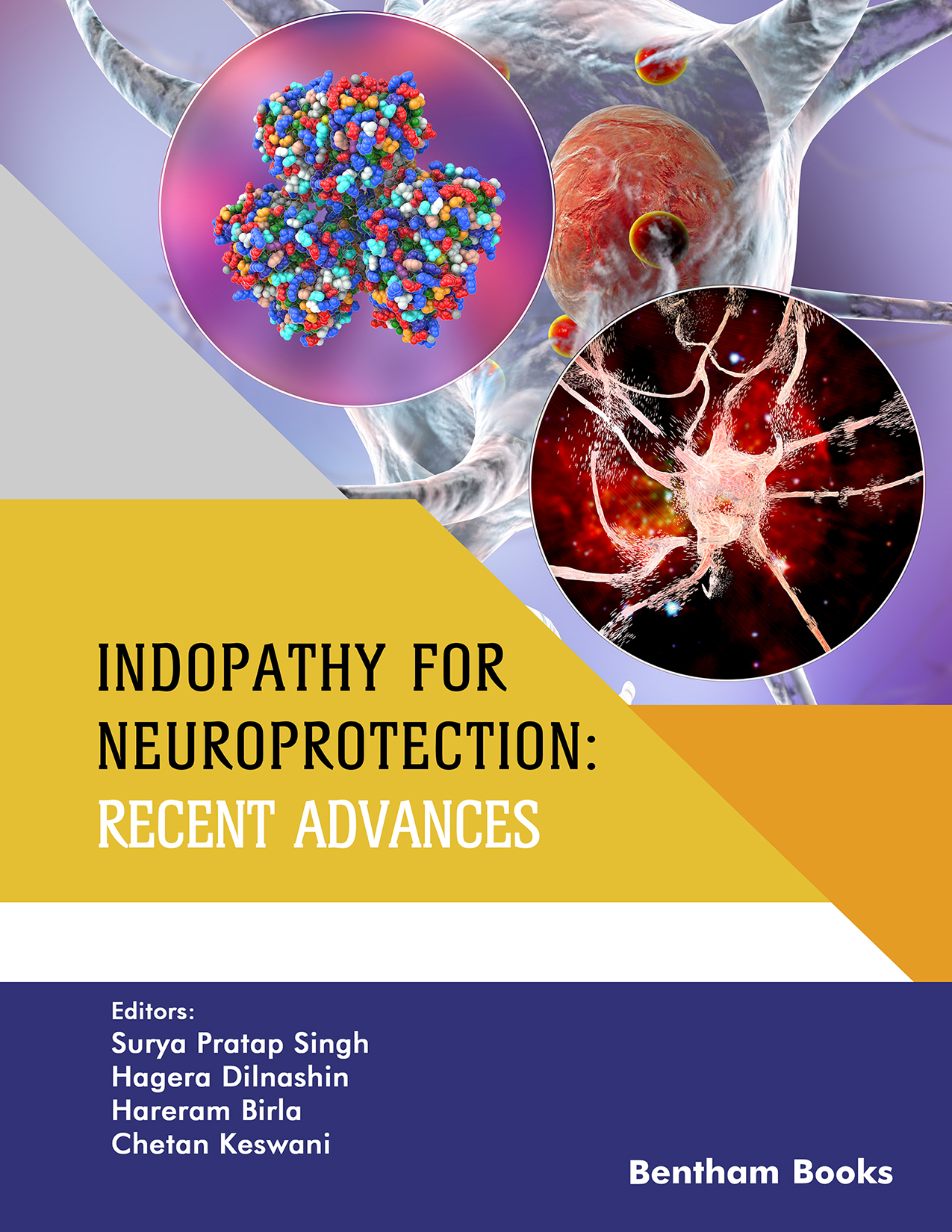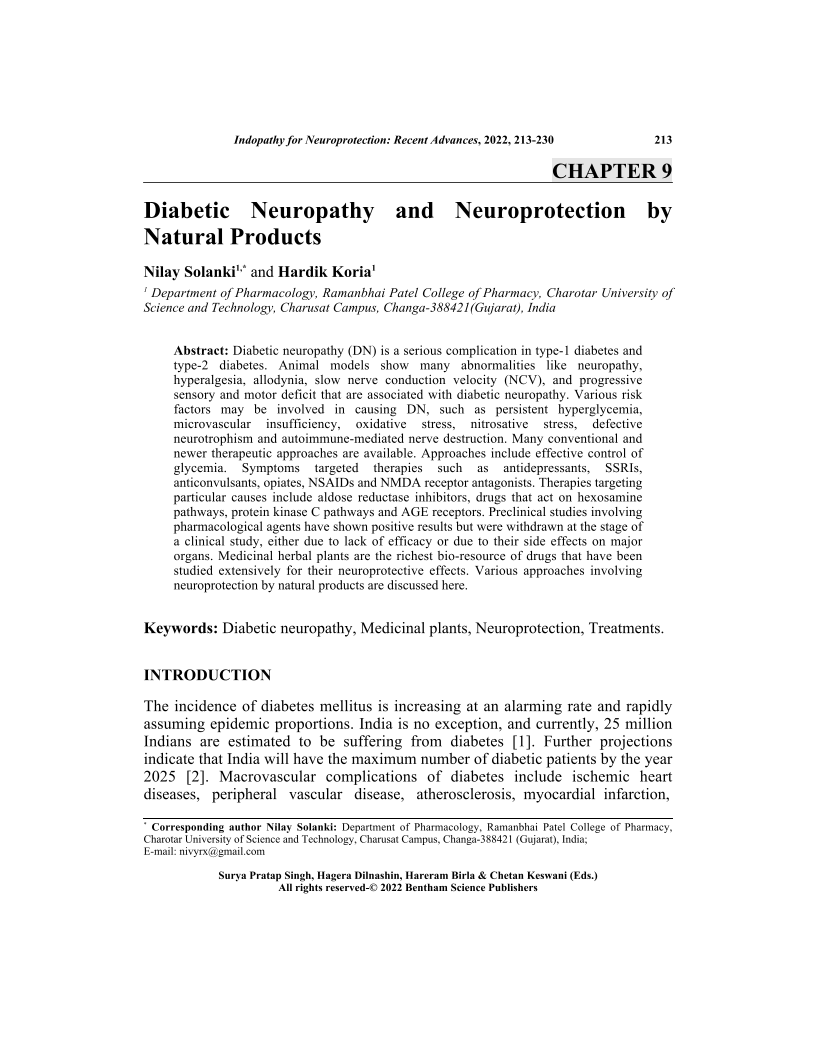Diabetic Neuropathy and Neuroprotection by Natural Products

- Authors: Nilay Solanki1, Hardik Koria2
-
View Affiliations Hide Affiliations1 Department of Pharmacology, Ramanbhai Patel College of Pharmacy, Charotar University of Science and Technology, Charusat Campus, Changa 388421(Gujarat), India 2 Department of Pharmacology, Ramanbhai Patel College of Pharmacy, Charotar University of Science and Technology, Charusat Campus, Changa-388421(Gujarat), India
- Source: Indopathy for Neuroprotection: Recent Advances , pp 213-230
- Publication Date: December 2022
- Language: English
Diabetic Neuropathy and Neuroprotection by Natural Products, Page 1 of 1
< Previous page | Next page > /docserver/preview/fulltext/9789815050868/chap9-1.gif
Diabetic neuropathy (DN) is a serious complication in type-1 diabetes and type-2 diabetes. Animal models show many abnormalities like neuropathy, hyperalgesia, allodynia, slow nerve conduction velocity (NCV), and progressive sensory and motor deficit that are associated with diabetic neuropathy. Various risk factors may be involved in causing DN, such as persistent hyperglycemia, microvascular insufficiency, oxidative stress, nitrosative stress, defective neurotrophism and autoimmune-mediated nerve destruction. Many conventional and newer therapeutic approaches are available. Approaches include effective control of glycemia. Symptoms targeted therapies such as antidepressants, SSRIs, anticonvulsants, opiates, NSAIDs and NMDA receptor antagonists. Therapies targeting particular causes include aldose reductase inhibitors, drugs that act on hexosamine pathways, protein kinase C pathways and AGE receptors. Preclinical studies involving pharmacological agents have shown positive results but were withdrawn at the stage of a clinical study, either due to lack of efficacy or due to their side effects on major organs. Medicinal herbal plants are the richest bio-resource of drugs that have been studied extensively for their neuroprotective effects. Various approaches involving neuroprotection by natural products are discussed here.
-
From This Site
/content/books/9789815050868.chap9dcterms_subject,pub_keyword-contentType:Journal -contentType:Figure -contentType:Table -contentType:SupplementaryData105

